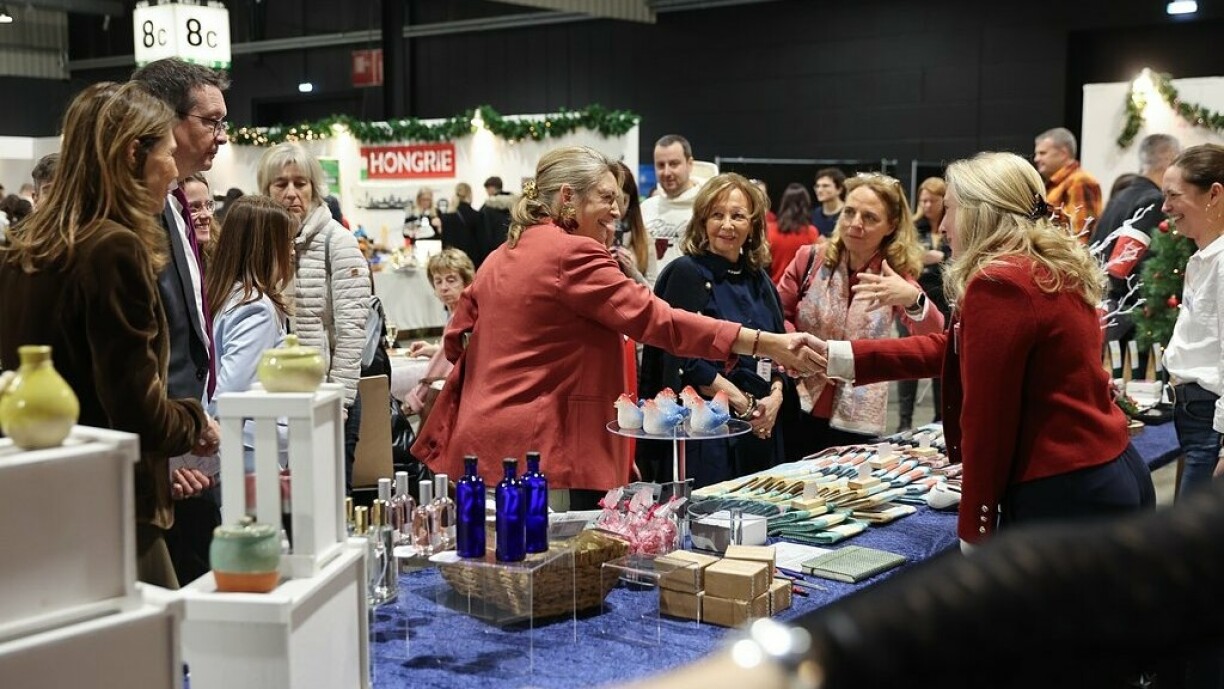
The International Bazar is growing in size and popularity. This year, it raised around €500,000 and is expected to surpass its previous attendance record of 43,000 visitors. For the 64th edition, 47 associations from 36 different countries were selected, with the event receiving 30% more space at Luxexpo. With Luxembourg recently recognising the Palestinian state, a Palestinian association may also be among the participants next year.
This year also marked the first official appearance of Grand Duchess Stéphanie at the event, who was warmly welcomed on Friday.
Organisers were keen to stress that the bazaar is not linked to politics or religion, even though an incident at the Israeli stand took place. Carmen Decalf, president of the International Bazar, expressed her deep disappointment over this. She emphasised that the event is about pride and joy, bringing people together for an international celebration. Visitors, she added, made it clear that they don’t want the bazaar to become a platform for political activism.
Meanwhile, Anne Persenaire, representing the Collective for Palestine, explained that her group peacefully gathered in front of the Israeli stand to protest the sale of products from settlements, including wine from the Golan Heights. She said they were eventually asked to leave by police and departed chanting “Free Palestine”, receiving support from some attendees.
A provocative sticker later appeared on the Israeli stand, featuring nationalist symbols from Luxembourg and very strong wording against Palestine. No one claimed responsibility, and those manning the stand declined to comment.
Following Luxembourg’s recognition of the Palestinian state, future applications from Palestinian associations will be accepted. Decalf stated that any group of volunteers willing to represent their country’s culture is welcome to apply, though not every request can be granted each year. She added that new associations require guidance and support during their early years at the event.
While political tensions surfaced, the main focus remained on the diverse and joyful atmosphere. This year’s edition showcased both the familiar and the exotic, from regional German beers and sausages to Belgian humour, beer, and Tintin posters.
In the end, the vibrant mix of cultures and products spoke for itself. The organisers are already looking ahead to next year’s edition.